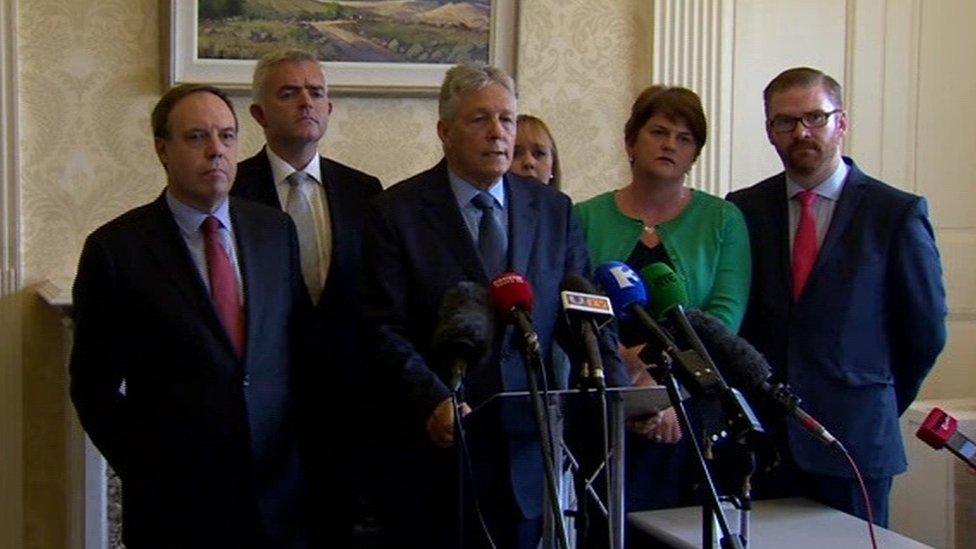Stormont crisis: David Cameron calls on parties to attend NI talks
- Published
Prime Minister David Cameron said the political situation at Stormont was "extremely worrying and difficult"
Prime Minister David Cameron has said he expects all the parties to take part when discussions on resolving the crisis within the Northern Ireland power-sharing executive resume next week.
Talks broke up on Thursday after the Democratic Unionist leader Peter Robinson stood aside and his other party ministers, except one, resigned from the executive.
The latest crisis followed a police analysis that IRA members were involved in the murder of a former IRA man.
Three senior republicans were arrested this week and subsequently released.
Mr Cameron said he was "extremely worried" about the crisis in the Northern Ireland Executive.
"I don't think it's right for the British government to step in and suspend these institutions. I want to see the politicians of Northern Ireland ... working out how to make these institutions work," he said.
"It is unacceptable in any part of our country to have active paramilitary groups. They have to be disbanded, and disbanded on all sides."
Six weeks
Deputy First Minister Martin McGuinness has said there are six weeks to resolve the outstanding difficulties in the political process and said Sinn Féin was up for the job.
Speaking at a party away-day at Gormanstown, County Meath, he said the last thing the DUP wanted now was an election.
He added that he had it in his power to force a poll, but he would not do so because he wanted the six weeks to see a resolution of all outstanding problems.

Who's who
Northern Ireland Executive: The ministerial team that runs Northern Ireland's devolved government at Stormont.
It is made up of British unionist, Irish nationalist and cross-community elected representatives, set up after an historic power-sharing agreement more than 20 years ago.
The largest party in the executive is the Democratic Unionist Party (DUP), followed by Sinn Féin, the Ulster Unionist Party (UUP), the Social Democratic and Labour Party (SDLP) and the Alliance Party.
DUP and UUP: Unionist parties that want to maintain Northern Ireland's union with Britain.
Sinn Féin and SDLP: Nationalist parties aspiring to a united Ireland.
Alliance Party: Neutral on the issue of the union.
The Irish Republican Army (IRA): The IRA has existed in various forms in Ireland since the early part of the 20th Century but the latest political row concerns the Provisional IRA.
The Provisional IRA was the name used by a paramilitary organisation that killed more than 1,700 people during decades of violence in Northern Ireland, known as the Troubles, which began in 1969.
The IRA declared ceasefires as part of the Northern Ireland peace process and in July 2005 it announced a formal end to its armed campaign.
During the Troubles, Sinn Féin acted as the political wing of the IRA.

A fresh round of talks to address the issue of paramilitaries and outstanding issues around welfare and Northern Ireland's budget began on Tuesday.
However, they broke down after it was revealed that Sinn Féin's northern chairman, Bobby Storey, was one of three republicans arrested in connection with the murder of ex-IRA man Kevin McGuigan Snr last month.
All three were released unconditionally on Thursday. A fourth person, a 50-year-old woman was also arrested and then released.
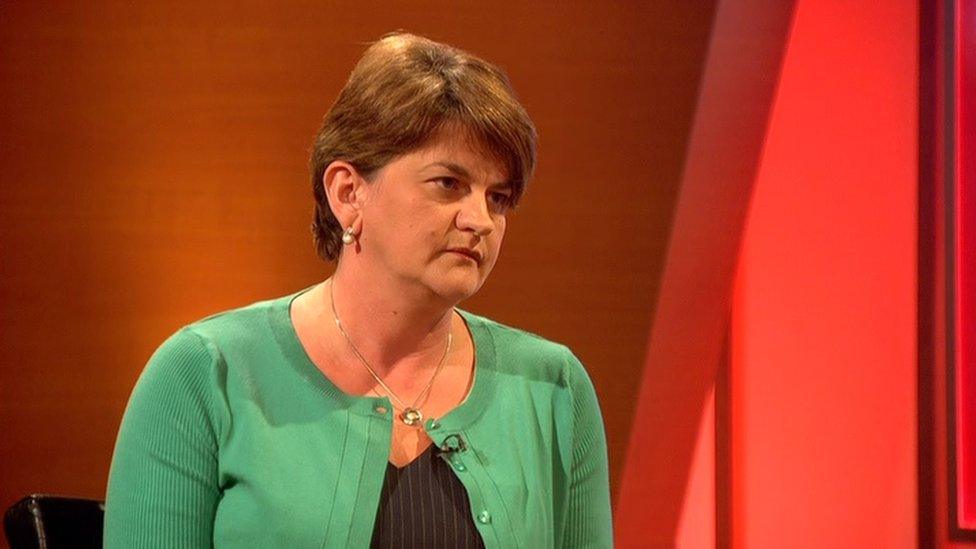
Arlene Foster, now the only remaining DUP minister, has taken over as acting first minister
Following the arrests, DUP leader and First Minister Peter Robinson said his ministers would quit if the assembly was not adjourned or suspended.
Mr Robinson stepped aside on Thursday after his party failed to get enough support to adjourn the assembly.
'Gate keeper'
The party's Finance Minister, Arlene Foster, now the only remaining DUP minister, has taken over as acting first minister.
"Peter Robinson had stepped aside to concentrate on leading the party delegation in the talks and he has left me there as a gate keeper and to act as first minister in his absence from that job," she said.
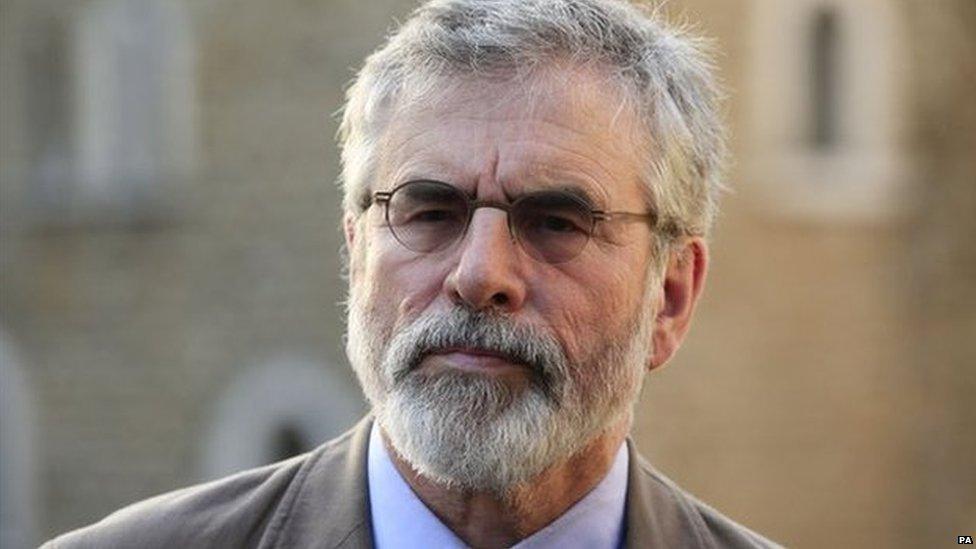
Sinn Féin leader Gerry Adams said his party had "repudiated those who killed Kevin McGuigan and Jock Davison"
Addressing the McGuigan murder, Chief Constable George Hamilton said that there was no evidence at that stage that the murder was sanctioned by the IRA, which he said was committed to politics and not engaged in terrorism.
Sinn Féin's leadership has insisted that the IRA no longer exists.
Asked on a possible IRA statement as a way to overcome current problems, Sinn Féin president Gerry Adams said "P O'Neill has been decommissioned", while Mr McGuinness added "and he's not coming back".
P O'Neill, external was the IRA's nom de plume used to sign IRA statements throughout the Troubles.
Following the police assessment on the murder, the Ulster Unionist Party withdrew from the Northern Ireland Executive.

Northern Ireland Executive crisis: Q&A
For months the power-sharing executive at Stormont has been deadlocked over budgetary matters.
Underlying this disagreement was Sinn Féin's refusal to implement welfare reforms introduced elsewhere in the UK.
However, the political crisis deepened last month after the police said current IRA members could have been involved in the murder of Belfast man, Kevin McGuigan.
Unionists argued that if the IRA remains active, Sinn Féin should be excluded from ministerial office.

The party said it would engage in talks only if the issue of the IRA was the first item to be dealt with.
The monitoring of paramilitary activity in Northern Ireland was conducted by the Independent Monitoring Commission (IMC) up until 2011.
Ms Villiers said re-instigating an independent authority to look at decommissioning command structures was a "credible" option.
"I think it wouldn't necessarily be appropriate to set up exactly the same structure that existed in the past and certainly one would need to ask it a different question. In the past the question was just about decommissioning and ceasefires," she said.
"I think now it is very clear we want to see these paramilitary organisations disband altogether. We also want to investigate the role of members of these organisations in relation to criminality."
- Published11 September 2015
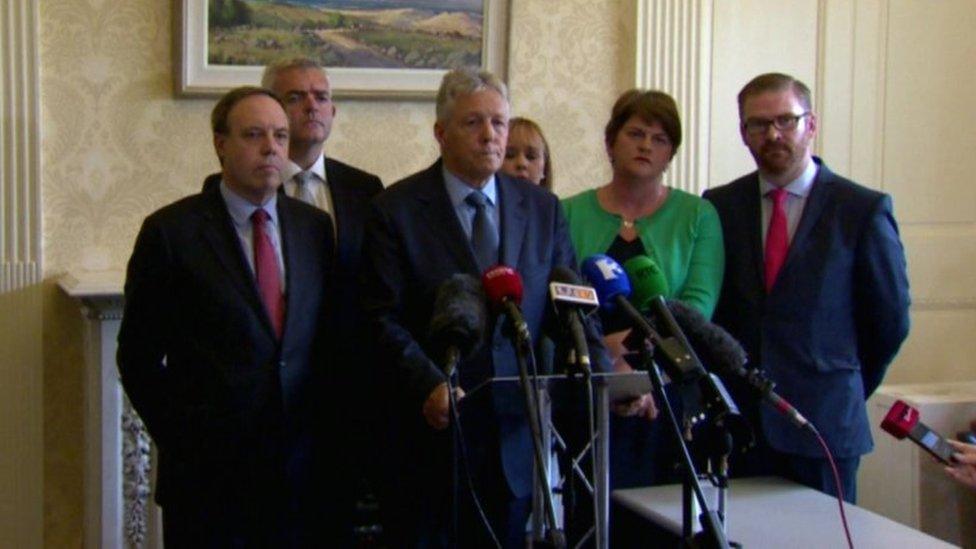
- Published11 September 2015
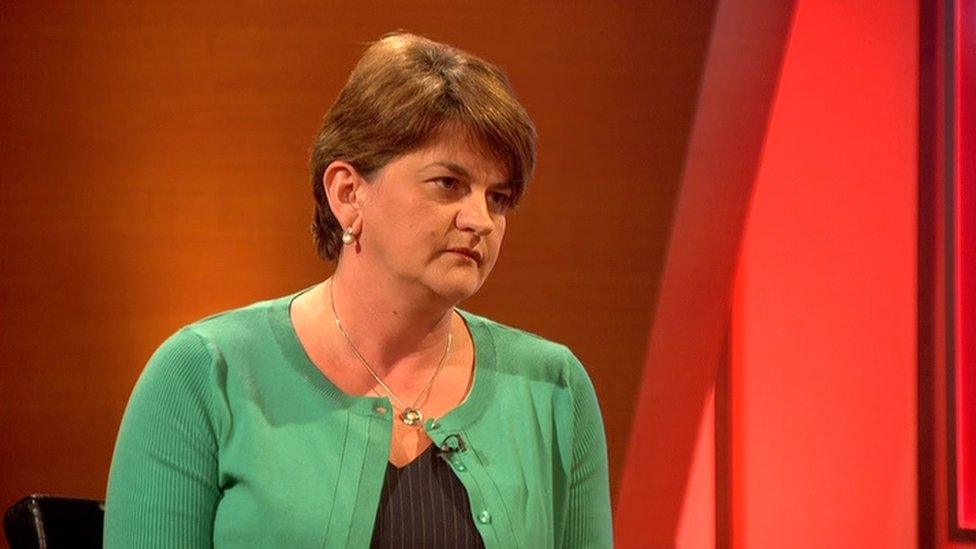
- Published13 November 2015
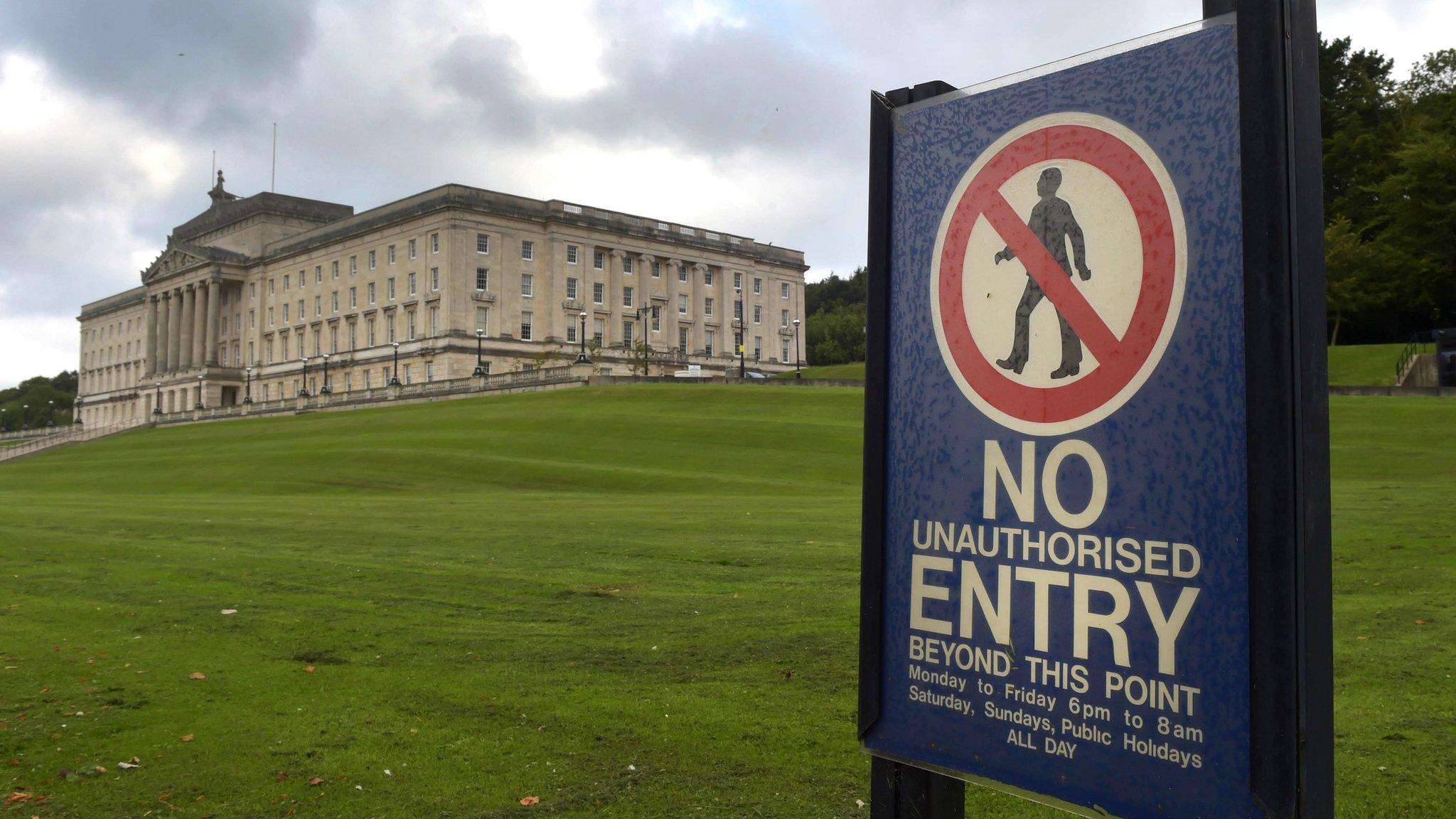
- Published10 September 2015
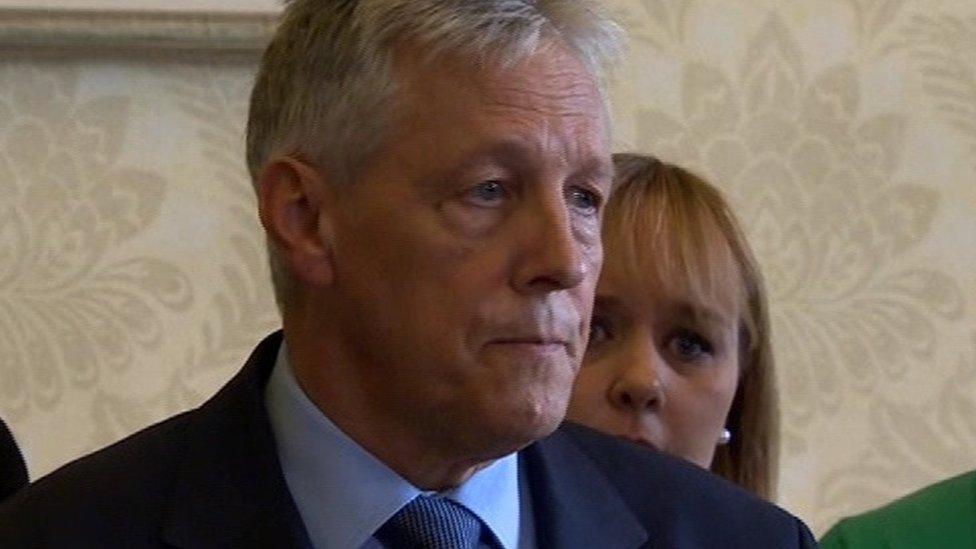
- Published11 September 2015
